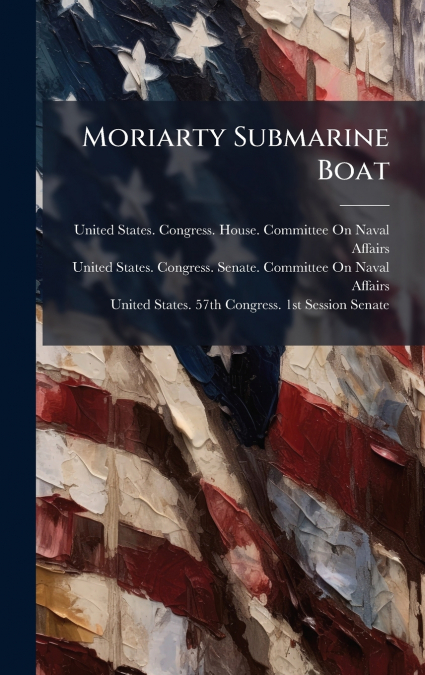
United States. 57 / United States. Congress. House. Commi... / United States. Congress. Senate. Comm...
This historical document comprises the hearings before the Committee on Naval Affairs of the Senate and House of Representatives concerning the ’Moriarty Submarine Boat.’ Compiled from the 57th Congress, 1st Session (1901-1902), these records offer a detailed examination of the proposed submarine technology and its potential implications for the United States Navy. The transcripts provide invaluable insights into the political and technological considerations of the era, showcasing the debates and evaluations surrounding early submarine development. Researchers and historians will find this volume a rich resource for understanding the intersection of military innovation, congressional oversight, and naval strategy at the turn of the 20th century. The ’Moriarty Submarine Boat’ hearings serve as a crucial primary source for anyone studying the evolution of naval warfare and the development of submarine technology in the United States.This work has been selected by scholars as being culturally important, and is part of the knowledge base of civilization as we know it. This work was reproduced from the original artifact, and remains as true to the original work as possible. Therefore, you will see the original copyright references, library stamps (as most of these works have been housed in our most important libraries around the world), and other notations in the work.This work is in the public domain in the United States of America, and possibly other nations. Within the United States, you may freely copy and distribute this work, as no entity (individual or corporate) has a copyright on the body of the work.As a reproduction of a historical artifact, this work may contain missing or blurred pages, poor pictures, errant marks, etc. Scholars believe, and we concur, that this work is important enough to be preserved, reproduced, and made generally available to the public. We appreciate your support of the preservation process, and thank you for being an important part of keeping this knowledge alive and relevant.